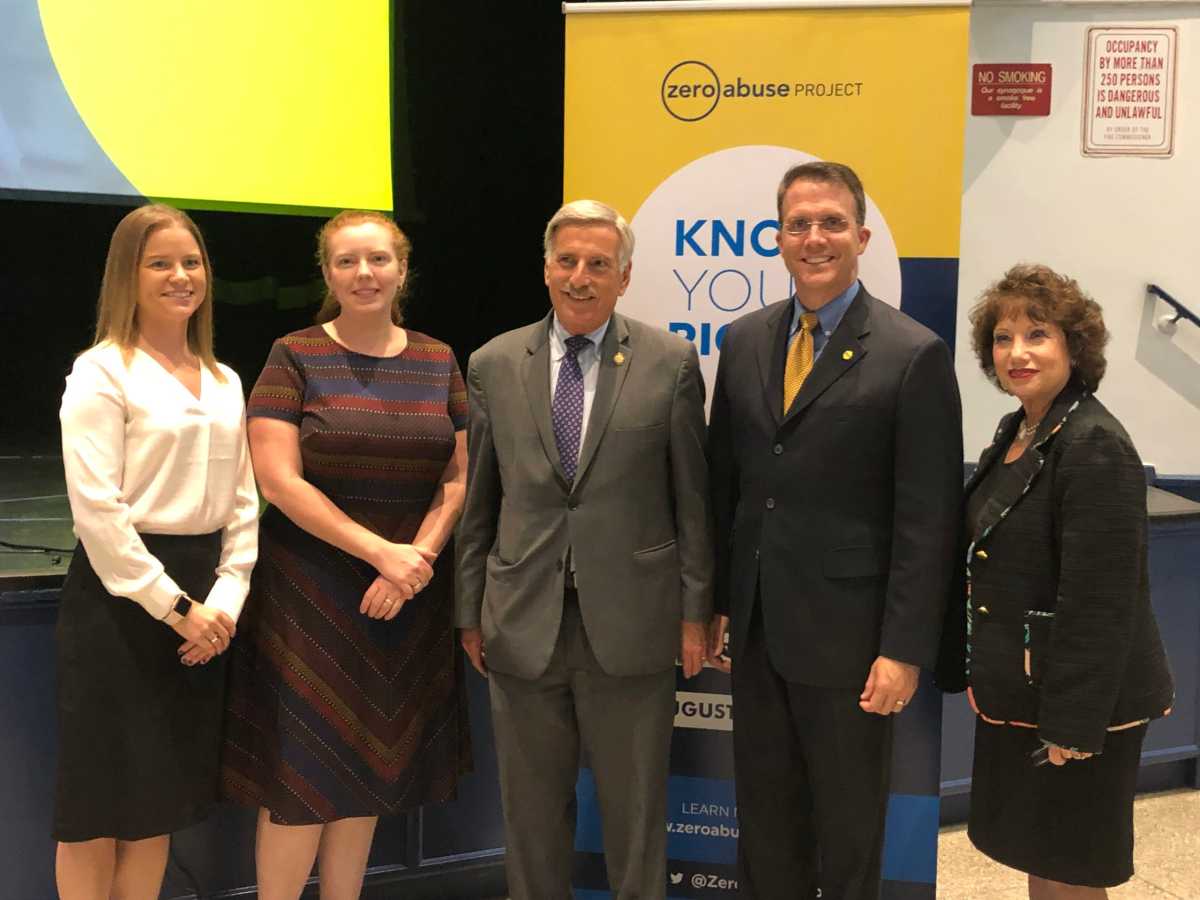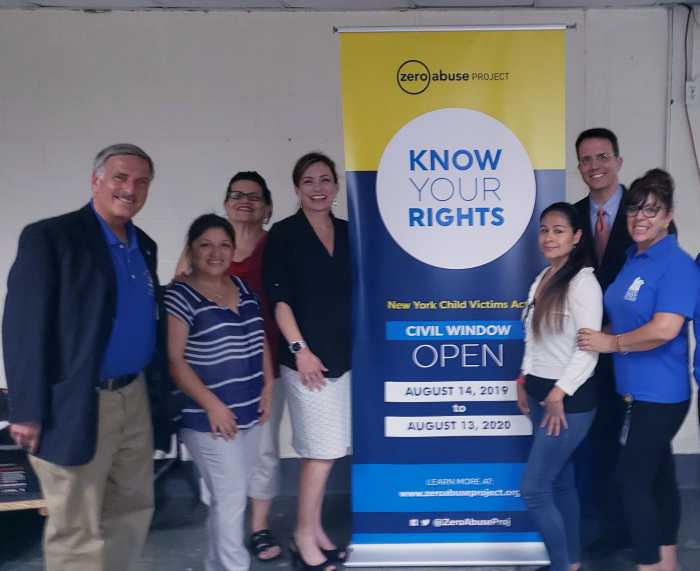A few weeks after the Child Victims Act took effect, Assemblyman David Weprin (D-Forest Hills) hosted a seminar in Hillcrest with the national non-profit Zero Abuse Project and U.S. National Speed Skater Bridie Farrell, a child sex abuse survivor and the co-founder of the advocacy group NY Loves Kids.
At the Sept.16th meeting, survivors learned about the changes to the statute of limitations under the CVA that would allow them to seek justice against their abusers and the institutions that helped to cover up abuse.
Before Aug. 14, victims of child sexual abuse were restricted to age 18 in filing a suit against their perpetrators or institutions, according to Weprin’s Office. The CVA lengthens the age limitation and allows victims to file a criminal suit until they are 23.
Victims’ over the age of 23 have a one-year window known as a “look back” period to file a civil lawsuit regardless of when the offense took place, according to the CVA. Civil lawsuits were also extended from age 23 to 55.
In 2017, The United States Department of Health and Human Services estimated that 2,158 children were sexually abused in New York. There were no breakdowns by county, but nationwide there were 58,144 cases of child sex abuse.
“The importance of this law is that it takes a long for survivors of child sexual abuse to come forward and this gives an opportunity to people to feel like they can come forward no matter how long ago it was,” said Jeff Dion, the CEO of the Zero Abuse Project, which is dedicated to stopping child sexual abuse and providing assistance to survivors.
This helps us to identify and expose abusers because even if someone waits 30 years to disclose their abuse and the perpetrator is still alive, we often find that they are still molesting kids at 70 or 80-years-old in walkers and wheelchairs because pedophiles don’t retire.”
When one survivor comes forward, more will find their voice to come forward too, according to Dion.
“Some people say ‘I didn’t think anyone would believe’ or ‘I thought I was the only one,'” said Dion. “So exposing those perpetrators is a great way to keep kids safe today.”
When California had a similar law in 2003, confusion surrounded it and Dion hopes with these seminar survivors are able to get clarity as to what their rights are under the CVA in New York.
“Some had thought that the civil window was only for Catholic sex abuse cases, but it was for everybody,” said Dion. “In the California window, out of 900 cases, almost none were filed by minorities or people of color. So we know that we have to do more outreach to overcome these barriers to justice. We want to make sure that everybody can hold their perpetrator or an institution responsible.”
Sometimes lack of knowledge about the bill, money or documentation has played a role in minorities in coming forward, said Dion.
“I think there are a lot of traditional barriers to justice. There is the thought that it is going to cost them money, but it doesn’t because it is a contingency case,” said Dion. “Sometimes if people are undocumented they are afraid of coming forward and having any interaction with the police or a lawyer because they are afraid it is going to put their immigration status at risk, but there are protections in place for that if that is their concern.”
The Zero Abuse Project is also working with Voces Latinas to get the message out in Jackson Heights for the Latino community.
“It’s a crime that breeds in secrecy,” said Dion. “If we can get people to overcome that barrier and get them to talk about it then we can get them help and that is what we are hoping to do.”
At the seminar, Farrell, a former speed skater from Saratoga Springs and now child sex abuse advocate, told her story about being a survivor.
“When I was 15, I was molested by my 33-year-old teammate,” said Farrell. “We were both training for the 1998 Olympic trials for speed skating and I didn’t speak or say anything to my parents, coach or anyone.”
The abuse led to Farrell taking a break from the sport for seven years, despite once being considered one of the fastest skaters in the nation when she was as young as 12.
In 2013, Farrell to the surprise of many in the sport returned to the game at the age of 31 at a time when most skaters would be considering hanging up their blades.
“I returned to the rink and I saw everything was the same – it was the same and I spoke up,” said Farrell. “‘If not me, who?'”
Farrell likened her experience to other organizations like the church, sports teams, and the entertainment industry as a whole.
“It was like going to church and seeing that guy still saying mass,” said the child advocate. “It’s all these youth-serving organizations.”
Her advocacy over the past five years helped to get the CVA passed.
“Three years ago I quit my job and decided to just focus on passing this bill in New York State,” said Farrell. “I just poured everything into it and was like someone needs to do this.”
Farrell believes her work as a child sex abuse advocate has more than eclipsed anything a medal for speed skating could have brought in her life.
“Every trophy was about ‘I’m better than you, or faster than you,'” said Farrell. “Passing this bill for me means that I can pass the microphone to thousands of people and say ‘you matter.'”
The Zero Abuse Project defines child sexual abuse as any sexual contact with a minor committed by a man, woman or juvenile.
To learn more about the CVA go to the ZeroAbuseProject.org. or call Weprin’s office at 718-454-3027.









